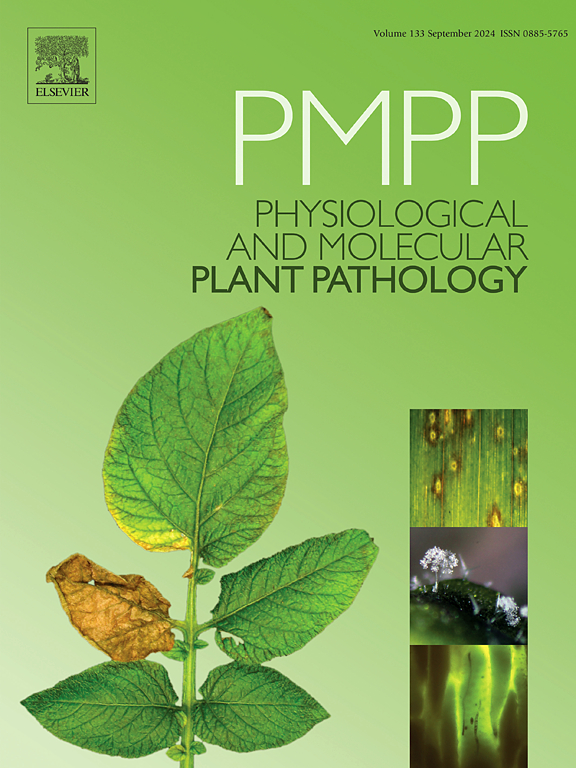Proteomics in plant-fungi interactions: Fundamental concepts to emerging innovations
IF 3.3
3区 农林科学
Q2 PLANT SCIENCES
引用次数: 0
Abstract
Plant-fungi interactions play a critical role in shaping agricultural productivity, with plant disease alone responsible for nearly 40 % of global crop losses annually. These interactions involve complex molecular dialogues between plants and pathogens, influencing disease progression and plant defense mechanisms. While genomics and transcriptomics have provided significant insights into these interactions, proteomics offers a dynamic perspective by capturing protein-level changes, post-translational modifications, and protein-protein interactions that directly mediate plant immunity and pathogen virulence. Recent breakthroughs in mass spectrometry, bioinformatics, and high-throughput proteomic techniques have significantly enhanced the resolution and accuracy of protein identification and functional characterization. The integration of proteomics with other omics approaches, such as genomics and metabolomics, has further enriched our understanding of plant defense responses, aiding in the development of disease-resistant crops. However, challenges such as proteome complexity, low-abundance protein detection, and data reproducibility remain obstacles in proteomic research. This review highlights the latest advancements in proteomic technologies, their application in deciphering host-pathogen interactions, and the potential future directions for integrating proteomics into sustainable disease management strategies. A deeper understanding of these mechanisms will facilitate the development of innovative crop protection strategies, ultimately contributing to global food security.
植物-真菌相互作用中的蛋白质组学:新兴创新的基本概念
植物与真菌的相互作用在影响农业生产力方面发挥着关键作用,仅植物病害每年就占全球作物损失的近40%。这些相互作用涉及植物和病原体之间复杂的分子对话,影响疾病进展和植物防御机制。虽然基因组学和转录组学已经为这些相互作用提供了重要的见解,但蛋白质组学通过捕获直接介导植物免疫和病原体毒力的蛋白质水平变化、翻译后修饰和蛋白质-蛋白质相互作用提供了一个动态的视角。质谱、生物信息学和高通量蛋白质组学技术的最新突破显著提高了蛋白质鉴定和功能表征的分辨率和准确性。蛋白质组学与其他组学方法(如基因组学和代谢组学)的结合,进一步丰富了我们对植物防御反应的理解,有助于抗病作物的开发。然而,诸如蛋白质组复杂性、低丰度蛋白质检测和数据可重复性等挑战仍然是蛋白质组学研究的障碍。本文综述了蛋白质组学技术的最新进展,它们在解读宿主-病原体相互作用中的应用,以及将蛋白质组学整合到可持续疾病管理策略中的潜在未来方向。对这些机制的深入了解将有助于制定创新的作物保护战略,最终为全球粮食安全作出贡献。
本文章由计算机程序翻译,如有差异,请以英文原文为准。
求助全文
约1分钟内获得全文
求助全文
来源期刊
CiteScore
4.30
自引率
7.40%
发文量
130
审稿时长
38 days
期刊介绍:
Physiological and Molecular Plant Pathology provides an International forum for original research papers, reviews, and commentaries on all aspects of the molecular biology, biochemistry, physiology, histology and cytology, genetics and evolution of plant-microbe interactions.
Papers on all kinds of infective pathogen, including viruses, prokaryotes, fungi, and nematodes, as well as mutualistic organisms such as Rhizobium and mycorrhyzal fungi, are acceptable as long as they have a bearing on the interaction between pathogen and plant.

 求助内容:
求助内容: 应助结果提醒方式:
应助结果提醒方式:


